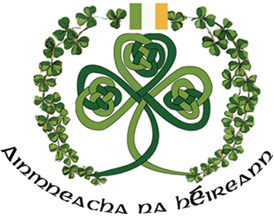

Irish? Celtic? Gaelic? Scottish? What Does it All Mean?
Many people have written to me with questions like "The name Kyle--is it Irish or Celtic?" and "can you help me find a Gaelic name?" So what do these terms mean? It's somewhat confusing to find a name when you're not sure what you're looking for. This page is an attempt to clarify some terminology to help you get onto the right path.

Celtic (pronounced kell-tic, unless you're a basketball fan from Boston)
The Celts were a group of people who spread over the European continent sometime around 1000-700 B.C. They probably originated someplace in Asia. They spoke a language which we now refer to as Celtic. As other groups of people moved around Europe, the Celts were pushed into the western regions of the continent (Ireland, Britain, Brittany & a region in Spain called Galicia) where they held out, intermarrying with other groups, until the present day. Because of the isolation of these regions, local dialects turned into separate languages, and the Celtic language became the Goidelic and Brythonic languages. There were 2 other branches of Celtic languages (Gaulish & Celtiberian) that died out, but we won't concern ourselves with those right now!
So when someone asks for a "Celtic" name, technically that could be a name from any one of these relatively newer languages. Or, it could mean a name that is so ancient, it was coined before the Celtic language branched off into different languages. There are a few of these names remaining. For example, names from Celtic mythology and religion are old enough to defy the classification of "Irish" "Scottish" or anything else.

Goidelic and Brythonic Languages
The Goidelic languages are Irish Gaelic, Scottish Gaelic, and Manx, which is spoken in the Isle of Man (Island between Ireland and Scotland. It's officially part of the United Kingdom). The Brythonic languages are Welsh, Cornish (Spoken in Cornwall, a peninsula in southern England, and Breton (spoken in Brittany, in western France).

Gaelic
The term Gaelic is usually used to refer to Scottish Gaelic, or Gàidhlig. Although Irish Gaelic, or Gaelige is also a Gaelic language, it's usually referred to as simply Irish or called "The Irish Language".

Irish And Scottish
Irish and Scottish names include anglicizations of Irish and Gaelic names, and names generally coined in the countries of Scotland in England. For Example, Elspeth is a form of Elizabeth that was first used in Scotland, and has remained closely associated with Scotland ever since. It is not technically a Gaelic name, since it was used first by speakers of Scots (the version of English spoken in Scotland).
An anglicization of a name is the English spelling and pronunciation of a Gaelic or Irish name. When the English moved into the Celtic language-speaking regions of the British Isles, they made attempts to re-spell native names, making them easier for English speakers to read and pronounce. Thus, a man named Aodhán Ó Murchú in Ireland or Fearchar Mac an-tSaoir in Scotland would become Aidan Murphy and Farquar McIntyre in English. These anglicized names are more common than their original Gaelic counterparts, particularly among Irish immigrants and descendants of Irish immigrants in other parts of the world. However, there has been a considerable resurgence in interest in the Gaelic languages, so many people whose names have been anglicized for several generations are now choosing to return to the original Gaelic and Irish forms.